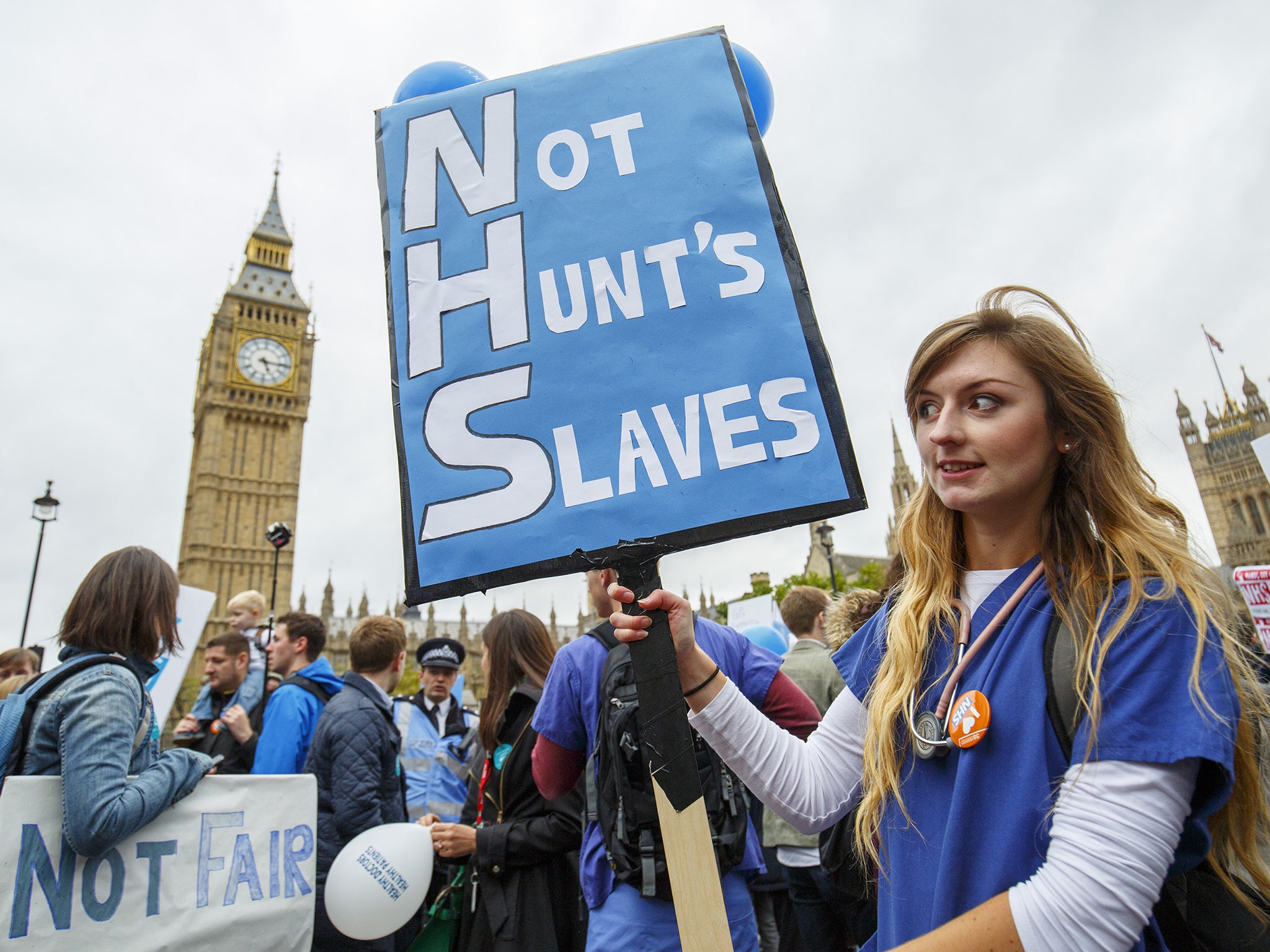Picking a fight with junior doctors is no way to improve the NHS, Jeremy Hunt
Rather than be demoralised at home, thousands of doctors are applying to work abroad


In a restaurant on New Year’s Eve, I spoke to a medical student who was working in the evenings as a waitress to pay her bills. Was she practising for when she leaves university and enters the medical profession as a junior doctor, I asked her, in a rather lame attempt to be supportive.
Working later hours is the price she will have to pay to be a junior doctor, with rather more serious consequences, of course, if she makes a mistake late at night in an emergency ward than with a restaurant order. Because this is what is at the heart of the junior doctor row: Jeremy Hunt has made it his political mission to make a seven-day NHS a reality. It is entirely true that patients need the NHS to work seven days, as I have written many times before, but at what cost? Is it really worth having a health service on those terms when it is staffed by a demoralised and exhausted army of junior doctors?
The British Medical Association’s announcement of three strikes by junior doctors, starting next Tuesday, is depressing for patients, whose non-emergency appointments will be cancelled. It is depressing because a previous set of walkouts was axed after the Government and the BMA agreed to more talks. Now they have broken down again, and the strikes are back on. It would be easy to blame junior doctors for pushing the Government to the limit. After all, under the contested new contract their basic pay will rise by 11 per cent, several times the rate of inflation and something very rare in the public sector.
But the junior doctors’ contract is a complete con. They will be obliged to work even longer hours to make the seven-day vision work, and, according to BMA chairman, Dr Mark Porter, the 11 per cent increase doesn’t compensate for the 31 per cent average payment taken away for working those unsocial hours. The prospect of higher wages further down the line is scant compensation too, given the punishing conditions under which they will have to work to get there.
To achieve the seven-day NHS, the Health Secretary is making scapegoats of junior doctors. We can get angry about their strike action, but remember that they are not to blame if you or I have to wait more than four hours in A&E, or if you can’t get an outpatient appointment for that referral within four weeks. If you are a patient in despair at the lack of GP and hospital out-of-hours services, don’t blame junior doctors. Blame the service itself, and those who manage it, for failing to make it work. And blame the Government for stepping up this war with a generation of doctors just so they can say they’re working on their seven-day election pledge.
This war will have long-lasting implications for recruitment of the next generation of would-be medical students. It already has: thousands of doctors are applying to go and work abroad rather than be subjected to demoralisation and vilification in our NHS, which is a tragic brain drain that the Government could so easily avoid. Among them is the daughter of Sarah Wollaston, the Conservative MP and chairman of the health select committee, herself a GP.
At the same time, more than 3,000 foreign doctors a year have to be recruited to work in the NHS to make up the numbers – without them the service would come to a standstill.
The truth is that junior doctors are already working long hours and at weekends. Yet the way this row has been framed by ministers suggests that they do not. This misconception has brought about the Hunt Effect, named after the Health Secretary, to describe the way that some patients are delaying going to hospital at weekends because they wrongly believe there is no seven-day care. If only the Labour Party were fighting fit as an opposition to challenge this misconception.
Even if the planned strikes are called off, and agreement is reached between the BMA and the Government, there will be no happy ending for the NHS. Despite the billions of pounds in extra investment, the Government botched its reform of the NHS during the last parliament while failing to address the most urgent health service need: social care. So when a major NHS crisis comes, as a result of an overworked, under-resourced workforce, you can bet that junior doctors will once again be in the firing line.



Join our commenting forum
Join thought-provoking conversations, follow other Independent readers and see their replies